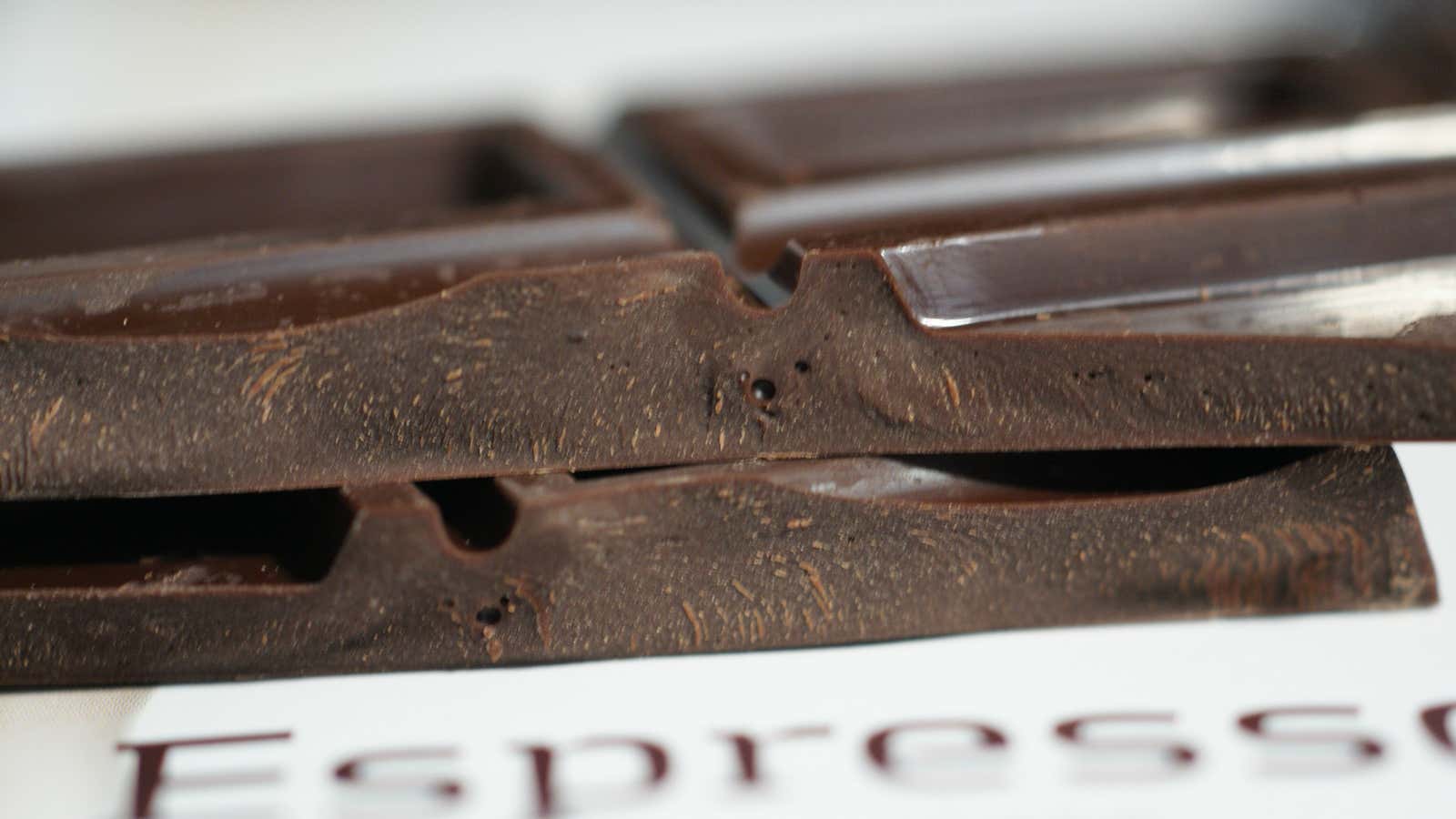For vegans, the lactose intolerant, and anyone else who foregoes dairy, chocolate bars can be a treat fraught with questions. Even dark chocolate bars have lines like, “may contain milk” or the more cryptic “may contain traces of milk” (emphasis mine).
Because milk is one of eight major food allergens, US law requires manufacturers to label foods that contain it. After receiving reports that consumers had adverse reactions to dark chocolate, the US Food and Drug Administration investigated and published their findings in a Consumer Update.
The FDA tested 94 dark chocolate bars, bought in different areas of the country, from a range of product lines and manufacturers. Their findings might upset those who try to avoid milk but love chocolate. (Hey–don’t blame the messenger!)
“Read ‘May’ as ‘Likely,'” the FDA advises, regarding labels that include statements like “may contain milk.” The FDA found milk in 3 out of every 4 dark chocolate products with that type of message on the label. “Some products,” the FDA says, “had milk levels as high as those found in products that declared the presence of milk.”
It gets worse: The FDA also found milk in 15% of the products that claimed to be “dairy-free” or “lactose-free” and 25% of those labeled “vegan.”
And if a label doesn’t mention milk at all, that (not surprisingly) doesn’t mean it’s not in there. “Milk-allergic consumers should be aware that 33% of the dark chocolates with no mention of milk anywhere on the label were, in fact, found to contain milk,” says Stefano Luccioli, M.D., a senior medical advisor at FDA.
All in all, the FDA found 61% of the dark chocolate bars contained milk—including 51 of the 88 that didn’t list it as an ingredient. The explanation: Most dark chocolate, according to the FDA, is produced on the same equipment that is used to make milk chocolate.
For the full findings, check out the FDA’s website.
The photograph above was taken by Lee McCoy and shared under a Creative Commons license on Flickr. It has been cropped
